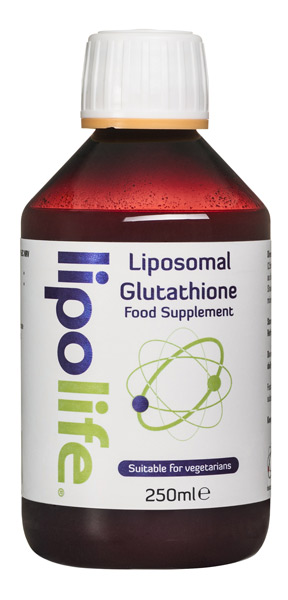Have you heard of glutathione? Generated in the body’s cells, it’s a naturally occurring, effective antioxidant. Yet, as a statement, that’s hardly doing it justice – because glutathione is so impressive it’s sometimes referred to by those in the know as ‘the mother of all antioxidants’.
Largely composed of three different amino acids (glutamine, cysteine and glycine), glutathione is such a useful antioxidant that, frankly, if its levels in the body are reduced, which unfortunately does happen, it’s advisable to take steps to try and boost them.
Why might your body’s glutathione count decrease? Well factors like stress, environmental toxins and nutritional habits can all take their toll – as can age, inevitably. Upping one’s glutathione levels, then, can take various forms; intravenously, topically or (surely most easily and most popular) orally, via a high-quality, organically-sourced glutathione supplement. The latter option is the one we suggest you opt for.
More on that shortly, though, because it’s important to understand just why glutathione is so important for us – thanks to its outstanding antioxidant properties…
Why glutathione’s so important
As you may expect, glutathione’s excellent antioxidant capacity aids the body in a number of different areas:
- Reduces oxidative stress – oxidative stress occurs as a result of ‘free radical’ toxins being given too free a rein in the body and, because of the bacterial imbalance this creates, can lead to the development of illness and disease, such as various cancers, diabetes and rheumatoid arthritis; too little glutathione in the body can lead to higher levels of oxidative stress, while more glutathione means higher antioxidant levels and, therefore, resistance to oxidative stress
- Decreases liver cell damage – when cells in the liver become damaged and die, this may bring on fatty liver disease (whether the liver is exposed to the effects of alcohol abuse or not); the liver cell damage can be exacerbated by an antioxidant deficiency, which can be prevented by increased glutathione levels
- Increases insulin resistance among older people – unfortunately, as they get older, people generate less glutathione, which means, according to studies, their bodies burn less fat; boosting their glutathione levels, then, can help to drive up their insulin resistance and ability to shed body fat
- Improves mobility for sufferers of peripheral artery disease – this illness occurs due to plaque obstructing peripheral arteries, often in the legs; glutathione is believed to aid circulation in these arteries and to help peripheral artery disease sufferers walk further, pain-free
- May combat the impact of autoimmune disease – owing to the fact autoimmune disease-caused chronic inflammation can drive up oxidative stress, glutathione is highly likely to reduce such oxidative stress (see above); autoimmune diseases concerned include the likes of celiac disease, lupus and rheumatoid arthritis
- May address the effects of long-term high blood pressure and diabetes – linked to low glutathione levels and so, inevitably, oxidative stress, long-term high blood pressure (as well as uncontrolled diabetes) can be addressed, in this manner, via glutathione dietary supplements (especially when combined with cysteine and glycine).
The liposomal factor
Speaking of glutathione supplements, they’re certainly the source for this fantastic antioxidant that we recommend (as noted above). Yes, it’s definitely true you can try to boost your glutathione levels via specific foods, but that means incorporating into your diet *very* specific foods that are glutathione-rich. So, vegetables like asparagus, avocado, okra and spinach or raw/ very rare meat and unpasteurised milk/ dairy products – the latter of which are, of course, entirely unacceptable for vegetarians and/ or vegans.

Instead, at The Finchley Clinic, we especially advise glutathione supplements created via the outstanding liposomal process. What’s this? Well, if a supplement’s referred to as a ‘liposomal’ supplement, it means it’s been prepared with the aid of applied nano-particle technology, which ensures the glutathione is highly bioavailable; maybe more so than in any other equivalent supplement.
For instance, in the latest supplement of its kind – the delicious-tasting Liposomal Glutathione Vanilla and Apricot flavour – the liposomal process ensures its microscopic offerings of glutathione are each encased in a nano-sized liposome bubble, so the stability of the chemical can be maintained on its journey through the digestive system.
This means the glutathione isn’t compromised and broken down by any digestive acids, so – once it reaches the gut – it can be fully absorbed and get about doing its antioxidant work in the body’s cells. In fact, this nano-particle technology ensures the body absorbs a liposomal supplement’s nutrients between seven and 10 times better than it does the equivalent nutrients from any non-liposomal supplements. A stark difference, indeed.
All of which means, then, that just a little of a liposomal glutathione supplement goes a long way – and, over time, a lot of it goes a *very* long way. And that’s precisely why we recommend liposomal glutathione supplements so highly and urge both our loyal and new customers to give them a try if they want to boost their glutathione levels.
